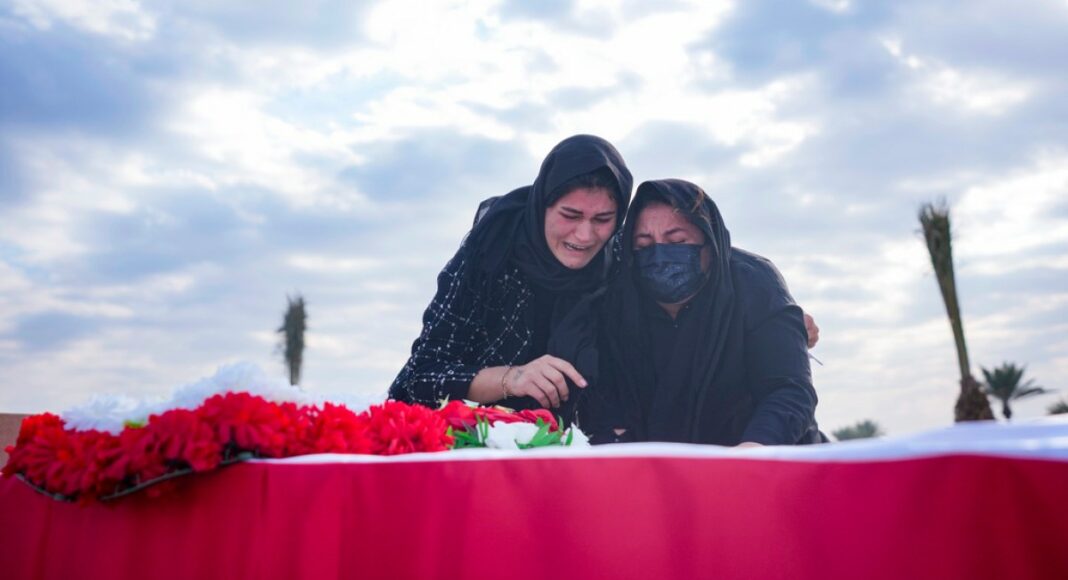Ten years on from ISIL’s massacre against the Yazidi people, hundreds of thousands of displaced survivors are unable to safely return to their former homes in Iraq, two NGOs say in a new report.
The report published on Friday by Refugees International and Voice of Ezidis, has warned that those making the dangerous journey to Europe are living in legal limbo.
It called on European countries to launch a humanitarian visa for genocide survivors that would enable Yazidis to reach Europe safely, and to apply EU-wide measures that would enable them to settle in countries where they have relatives.
The Yazidis, a long-persecuted group whose faith is rooted in Zoroastrianism, are still recovering from the horrors of ISIL’s onslaught on their community in Iraq’s Sinjar district in 2014.
Within days, nearly 10,000 people were killed – either shot, beheaded or burned alive – or kidnapped, according to the Public Library of Science journal PLOS Medicine in 2017.
Some villages in Sinjar are mass graveyards – yet to be exhumed. More than 2,800 women and children are also believed to be still missing.
A decade on, survivors are still grappling with trauma.
Sinjar largely remains in ruins, with the federal Iraqi government and the autonomous Kurdistan Region of Iraq tussling for control over the area. Yazidis are deprived of political agency and unable to practice their religion. Few have received reparations or compensation.
According to the report, more than 200,000 Yazidis remain displaced, scattered in camps in the Kurdistan region and disputed areas of northern Iraq.
The Iraqi government, which this year announced a July 30 deadline to close the camps, has offered payments and jobs to those who leave. However, researchers say that the Yazidis they spoke to feel unable to return to the dangerous conditions in Sinjar.
Researchers from the two NGOs spoke to 44 refugees in Greece across three camps, one in Serres, and two others close to the cities of Thessaloniki and Athens.
Many of these were among the 4,000 who fled in 2023. As well as abuse from ISIL, Yazidis also reported discrimination from Kurds.
With a lack of “safe pathways” to Europe, Yazidis tend to hire smugglers to get them to countries like Greece, from where they move to other European states, people often dying or facing deportation during the journey. Families are frequently torn apart, members scattered in different locations. Many of the Yazidis interviewed in Greece had spent years living in “misery” in the camps but were unable to return to the dangers in Iraq or reunite with family in countries like Germany and the Netherlands.
Those who make it to Europe face years of separation from loved ones. One woman interviewed in Serres had left behind her two-year-old child in Iraq. Her goal was to reach the Netherlands, where her husband has relatives, apply for asylum and bring her child directly there. However, when they eventually make it to the Netherlands, it will take 15 months to process their asylum claims and 81 weeks to apply for their child to join them.
Meanwhile, in Greece, families grapple with multiple challenges. Once recognised as refugees in Greece, people are required to leave their camps within a month, with nowhere to live and no means of supporting their families.
HELIOS, an integration programme supported by the International Organization for Migration, is able to meet only “a fraction of the demand” for help, said the report.
Some leave the country, and the Greek authorities reportedly expedite the granting of refugee status and passports, so they can reapply for asylum elsewhere, often in Germany.
Many find themselves in legal limbo, as Germany “de-prioritised” asylum claims between 2019 and 2022 from applicants who had already been granted international protection in Greece.
The report stated that many of those denied asylum have been granted “Duldung” status, which means they cannot bring family members to join them.
Under a 2003 agreement with Iraq, they even be deported. Last year, Kurdish media reported that a Yazidi man deported after 11 years in Germany had died in Erbil. With nowhere to live, he had made himself a makeshift shelter out of cardboard under a bridge near the city’s Franso Hariri Stadium, where he was found dead.
It is as yet unclear how Yazidis will be impacted by the EU Pact on Migration and Asylum, passed by the European Parliament last month. Under the new law’s “solidarity mechanism”, EU countries are supposed to share responsibility for asylum seekers, taking into account “meaningful links”, including family ties, when relocating people to second countries.
But the package could also make things worse for Yazidis, with EU countries now establishing border facilities to host and screen asylum seekers, sending back those deemed ineligible. Rights groups have slammed the reforms, saying they undermine asylum seekers’ rights and expose them to human rights violations like arbitrary detention and abusive policing.



